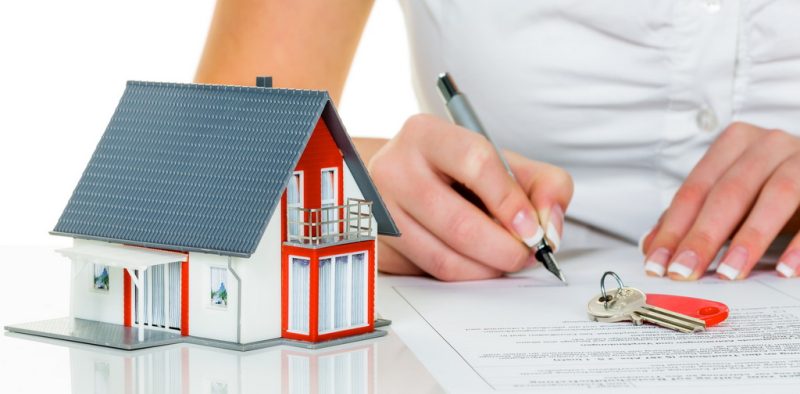Buying a House in Texas: What You Need to Save

Buying a home in Texas involves several important steps, such as getting a mortgage pre-approval and finalizing the deal. Before starting this process, it’s essential to understand the costs involved. Many potential buyers often wonder, “How much money do I need to buy a house?” and rightfully so.
Factors like home prices, down payments, and ongoing expenses are crucial financial considerations. Being aware of these costs can help you plan your budget effectively and steer clear of any financial traps.
Eroica Financial Services is here to help buyers navigate this complicated process. Whether you’re purchasing your first home or planning to invest, their tailored mortgage solutions are designed to meet your specific requirements. Their knowledge ensures that your financial aspirations align with your dreams of owning a home, giving you peace of mind throughout the buying journey.
By familiarizing yourself with each step involved in purchasing a house in Texas, you’ll be better equipped to make wise choices. This guide will provide you with all the information you need on saving and budgeting, making your path to homeownership smoother and more manageable.
Understanding Home Prices in Texas
Navigating the Texas real estate market requires a solid understanding of home prices across the state. As of recent data, the median home price in Texas hovers around $342,400. This figure provides a general sense of what you might expect to pay, though prices can vary significantly based on location.
To illustrate:
Lubbock offers more affordable options, with median home prices significantly lower than the state average.
Austin, known for its vibrant tech scene and cultural amenities, often sees higher prices, well above the median.
Several factors influence these price variations:
Location: Proximity to major cities and amenities drives up demand and prices.
Economic Factors: Job growth and economic stability in regions like Austin attract more buyers, pushing property values higher.
Supply and Demand: Limited housing inventory in popular areas can lead to competitive bidding and higher prices.
Understanding these dynamics helps you make informed decisions when working with home lenders in Texas or consulting a mortgage lender in Texas.
Calculating the Down Payment: How Much Do You Need?
Understanding how much down payment to prepare is crucial when buying a house in Texas. The typical down payment percentage hovers around 12% of the home’s purchase price. Given the current median home price in Texas is approximately $342,400, this translates to a down payment of about $41,088.
Down Payment Options:
Conventional Loan: For those opting for conventional loans, the minimum down payment requirement can be as low as 3%. However, putting down less than 20% usually requires Private Mortgage Insurance (PMI).
FHA Loan: FHA loans are popular among first-time homebuyers due to their lower down payment requirement, which is typically 3.5%. This makes homeownership more accessible but involves paying mortgage insurance premiums.
VA Loan: Veterans and active-duty military personnel may qualify for VA loans, which offer a zero down payment option. This benefit significantly reduces upfront costs but requires meeting specific eligibility criteria.
Choosing the right loan type and understanding its implications on your finances helps in making an informed decision. Taking advantage of various loan programs can ease the financial burden during the home-buying process.
Monthly Mortgage Payments Breakdown: What to Expect?
When planning your home purchase, understanding your monthly mortgage payments is crucial. Using the current median home price in Texas of approximately $342,400 and an interest rate of 7.5%, here’s what you can expect.
Calculation Example
Assume a down payment of 12% (around $41,088). The loan amount would be $301,312. Using a 30-year fixed-rate mortgage:
Loan Amount: $301,312
Interest Rate: 7.5%
Monthly Payment: Approximately $2,106
This calculation includes principal and interest but excludes property taxes and homeowner’s insurance.
Impact of Down Payment Percentage
The size of your down payment significantly impacts monthly payments. If you opt for a lower down payment, such as the minimum 3% for conventional loans with PMI:
Down Payment (3%): $10,272
Loan Amount: $332,128
Monthly Payment: Approximately $2,319 (including PMI)
For VA loans that offer zero down payment:
Loan Amount: $342,400
Monthly Payment: Approximately $2,392
A larger down payment reduces the loan amount and monthly payments, while smaller down payments increase them.
Understanding these figures helps answer the question: How much money do I need to buy a house?
Closing Costs Explained: Don’t Forget About Them!
When buying a house in Texas, closing costs are a significant expense that you need to account for. Typically, closing costs amount to around 1.5% of the sale price. For a median-priced home in Texas valued at $342,400, this translates to approximately $5,136.
Closing Costs Breakdown
Closing costs include various fees and charges, such as:
Appraisal Fees: Assessing the property’s value usually costs between $300 and $500.
Title Insurance: Protects against potential disputes over property ownership, typically costing around $1,000.
Origination Fees: Charged by lenders for processing the loan application, generally 0.5% to 1% of the loan amount.
Recording Fees: Costs for registering the property’s purchase with local authorities, roughly $100 to $200.
Credit Report Fees: Obtaining your credit history may incur charges of about $30 to $50.
Inspection Fees: Home inspections for structural issues or pests can range from $200 to $500.
Understanding these components helps you prepare better for the financial requirements of buying a home. Being aware of these expenses ensures that there are no surprises during the home-buying process.
Ongoing Costs of Homeownership: Budgeting for the Long Haul
Owning a home means preparing for a variety of additional costs of buying a house. These ongoing expenses can significantly impact your budget.

1.Property Taxes
In Texas, property taxes are among the highest in the country. Rates can vary depending on the county and city, but you can expect to pay roughly 1.81% of your home’s assessed value annually.
2.Homeowner’s Insurance
Protecting your investment is crucial. Homeowner’s insurance policies in Texas generally cost around $1,945 per year, although this can fluctuate based on location, home value, and coverage specifics.
Maintenance and repairs are inevitable aspects of homeownership. It’s vital to set aside funds for:
3.Routine Maintenance
Tasks like lawn care, HVAC servicing, and minor repairs keep your home in good shape. Budgeting about 1% of your home’s value annually is a safe estimate.
4.Unexpected Repairs
Emergencies such as plumbing issues or roof damage can arise without warning. Having an emergency fund specifically for these situations ensures you’re financially prepared.
Understanding these expenses helps you maintain your financial stability while enjoying your new home.
Affordability Guidelines for Home Buyers: Know Your Limits!
When it comes to buying a home, it’s important to have a clear understanding of what you can afford. This involves looking at your income and expenses to determine how much you can comfortably spend on housing costs.
Housing Costs and Income
One key factor to consider is the relationship between your housing costs and your gross monthly income. As a general rule of thumb, it’s recommended that you spend no more than 28% of your gross monthly income on housing expenses. This includes not only your mortgage payment but also property taxes and homeowner’s insurance.
For example, if your monthly income is $5,000, then according to this guideline, you should aim to keep your total housing costs (including mortgage, taxes, and insurance) below $1,400.
Total Debt Obligations
In addition to housing costs, it’s also crucial to take into account all your other debt obligations. This includes any car loans, credit card payments, or other loans you may have. To maintain a healthy financial situation, it’s advisable to keep your total debt payments under 36% of your gross monthly income.
Using the same example of a $5,000 monthly income, this means that all your debt payments combined (including mortgage payment) should ideally be kept below $1,800.
By following these affordability guidelines and being mindful of both housing costs and total debt obligations, you can make informed decisions about buying a home that align with your financial goals.
Emergency Savings and Financial Readiness: Be Prepared!
Building a strong financial foundation is crucial when buying a home. One important aspect is having enough cash reserves for emergencies. Experts recommend having at least six months’ worth of cash reserves after purchasing a house. This safety net ensures you can handle unexpected expenses without putting your financial stability at risk.
Why Six Months?
Financial Security: Unexpected events such as job loss, medical emergencies, or major home repairs can put a strain on your finances. Six months of savings provide a safety net.
Peace of Mind: Knowing you have a cushion allows you to manage unforeseen costs without stress.
Loan Approval: Lenders often look favorably on buyers with substantial reserves, enhancing your loan eligibility.
Building Your Cash Reserves
Start Early: Ideally, begin saving well before your home purchase.
Automate Savings: Set up automatic transfers to a dedicated savings account.
Reduce Unnecessary Expenses: Trim non-essential spending to boost your savings rate.
Practical Example
If your monthly living expenses are $3,000, aim to save around $18,000 as an emergency fund. This calculation provides a clear target, helping you plan effectively.
By maintaining sufficient cash reserves for emergencies, you secure not only your new home but also your financial future.
Consult with Eroica Financial Services: Your Trusted Partner in Home Buying!
Eroica Financial Services offers expert advice and personalized mortgage solutions tailored to your needs. Whether you’re asking, “How much money do I need to buy a house?” or seeking to understand various financing options, our team is here to help.
Personalized mortgage solutions
Expert financial advice
Support for purchase, refinancing, and investment loans
Reach out today to contact Eroica Financial Services and take the first step towards realizing your homeownership dreams.